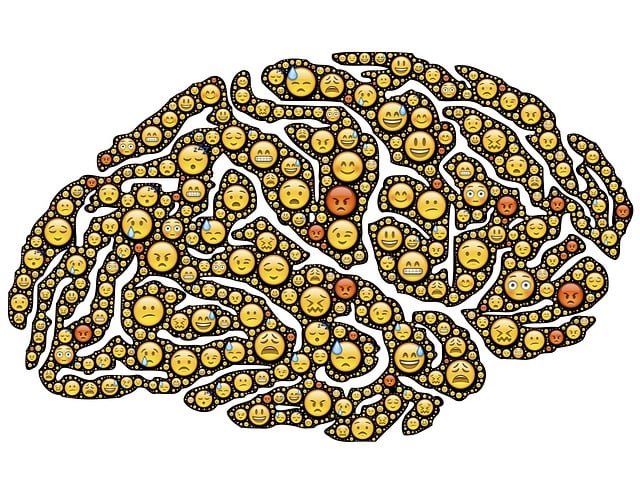Mental health policies are vital for providing accessible care to underrepresented communities, such as deaf and hard-of-hearing individuals. Greenwood Village American Sign Language (ASL) Therapy leads the way in this regard by offering specialized services that promote inclusive practices. By integrating ASL therapy, these initiatives foster positive thinking, inner strength, and conflict resolution skills, creating more inclusive environments where mental health support is readily available to all, regardless of language or cultural background. The success of Greenwood Village ASL Therapy demonstrates the importance of communication strategies in enhancing access to mental health services for underserved communities.
Mental health policies significantly shape accessible care, especially for marginalized communities. This article explores how understanding mental health policy impacts care delivery and highlights the unique role of Greenwood Village American Sign Language Therapy (GVALT) in advocacy. We discuss effective strategies for mental health policy analysis and community engagement, focusing on innovative practices that promote inclusivity and equitable access to services. By examining these aspects, we aim to contribute to a more comprehensive and supportive mental healthcare landscape.
- Understanding Mental Health Policy and Its Impact on Accessible Care
- The Role of Greenwood Village American Sign Language Therapy in Policy Advocacy
- Strategies for Effective Mental Health Policy Analysis and Community Engagement
Understanding Mental Health Policy and Its Impact on Accessible Care

Mental health policies are pivotal in shaping accessible care, especially for underrepresented communities like the deaf and hard-of-hearing individuals. Greenwood Village American Sign Language Therapy (ASL) is a prime example of specialized care that advocates for inclusive practices. Effective policies ensure that mental health services cater to diverse needs, including those who may face barriers due to communication differences or cultural misunderstandings.
By integrating ASL therapy and similar initiatives, communities can foster positive thinking and inner strength development among their members. These approaches not only enhance individual well-being but also promote effective conflict resolution techniques. Such policies impact society as a whole, encouraging more inclusive environments where mental health support is readily available and accessible to all, regardless of language or cultural background.
The Role of Greenwood Village American Sign Language Therapy in Policy Advocacy

Greenwood Village American Sign Language (ASL) Therapy plays a pivotal role in policy advocacy for mental health, particularly within the deaf and hard-of-hearing community. This specialized therapy service addresses a critical gap in healthcare access by offering culturally sensitive support tailored to individuals who rely on ASL as their primary means of communication. By providing direct therapy in American Sign Language, Greenwood Village ASL Therapy ensures that mental wellness services are inclusive and accessible to all, regardless of hearing abilities.
This approach is especially relevant in promoting cultural competency among healthcare providers. Through training programs focused on sign language proficiency and cultural sensitivity in mental healthcare practice, Greenwood Village ASL Therapy empowers professionals to better serve diverse patient populations. Such initiatives contribute to a more holistic understanding of mental health within communities that have historically faced barriers in accessing appropriate care, fostering an environment where everyone can thrive and receive the support they need.
Strategies for Effective Mental Health Policy Analysis and Community Engagement

Effective mental health policy analysis requires a multifaceted approach that incorporates community engagement and diverse perspectives. One powerful strategy is to involve individuals with lived experiences, such as those who have successfully navigated challenges related to emotional regulation and resilience building. The Greenwood Village American Sign Language Therapy initiative, for instance, demonstrates how integrating communication strategies like ASL can enhance access to mental health services for hard-to-reach communities. By fostering empathy building strategies within policy frameworks, decision-makers can create more inclusive and culturally sensitive support systems.
Community engagement should be a continuous process, involving regular consultations, focus groups, and collaborative workshops. This participatory approach ensures that policies reflect the unique needs and strengths of different populations. Encouraging open dialogue between mental health professionals, community leaders, researchers, and policy advocates facilitates the exchange of innovative ideas and best practices. Ultimately, these collaborative efforts can lead to more effective interventions and systems that promote emotional well-being on a broader scale.
Mental health policy analysis and advocacy are vital components in ensuring accessible care for all. By understanding the impact of policies on mental healthcare, communities can drive meaningful change. The case of Greenwood Village American Sign Language Therapy demonstrates how dedicated advocacy efforts can improve services for deaf individuals, highlighting the power of community engagement. Adopting effective strategies outlined in this article will empower advocates to navigate policies, foster collaboration, and ultimately create a more inclusive and supportive mental health landscape.














